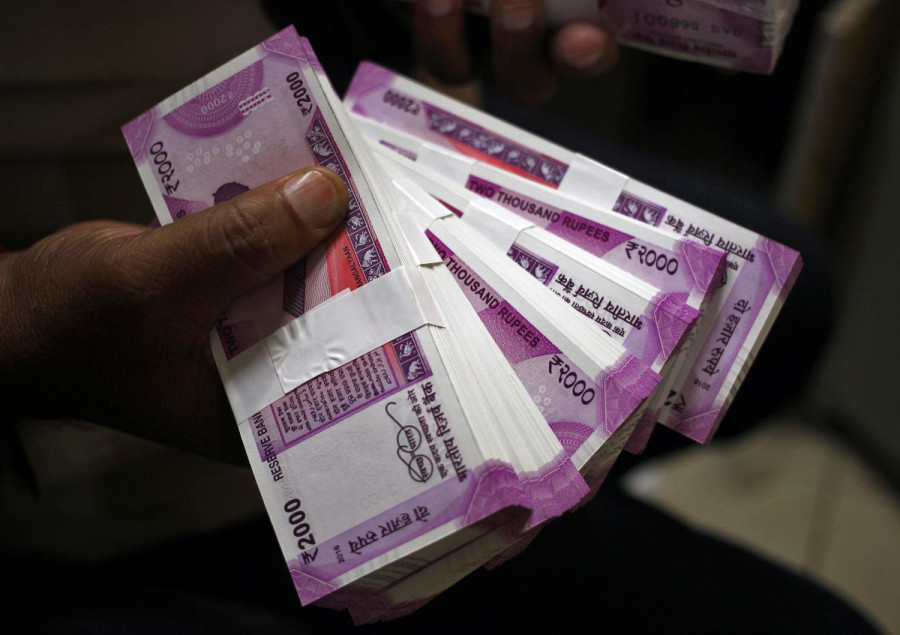Money
Nepal begins talks to make banned Indian notes legal
The Nepal government has initiated talks with India to make Indian bank notes of denominations higher than INR100 legal tender in the country after banning the use of such notes in the country.
Bibek Subedi
The Nepal government has initiated talks with India to make Indian bank notes of denominations higher than INR100 legal tender in the country after banning the use of such notes in the country.
Nepal Rastra Bank (NRB), the central monetary authority of the country on Friday dispatched a letter to the Indian central bank —Reserve Bank of India (RBI), asking it to make Indian bank bills of 200, 500 and 2000 legal tender in Nepal.
The NRB has asked the RBI to issue a foreign exchange management (FEMA) notification which will make Indian bank notes of 200, 500 and 2000 legal tender in Nepal and to provide the exchange facilities to get bills of such denominations. The Indian central bank has only allowed the circulation of Indian bank notes of 100 and less in Nepal and provides exchange facilities for bills of such denominations.
Before demonetising their 500 and 1000 bank notes in November 2016, the RBI had issued a FEMA notification allowing Nepalis to carry such bank notes worth up to INR 25,000. However, after the demonetisation of Indian 500 and 1,000 rupee bank notes, the Indian government started the circulation of new bank notes of denominations 200, 500 and 2000. The RBI didn’t issue the notification for the newly circulated bank notes, making their use illegal in Nepal.
“As the RBI was not allowing the circulation of the higher denomination Indian notes, we had to ban their use in Nepal to protect our citizens,” said Bhisma Raj Dhungana, chief of foreign exchange management department at the NRB. “However, after we received complaints from people in various sectors, especially those who have to visit India frequently, we asked the Indian central bank to make such bank notes legal tender in Nepal.” The circulation of such notes in Nepal, according to Dhungana, will solely depend upon the RBI and Indian government’s will.
Likewise, in the same letter, the NRB has also asked the Indian central bank to provide exchange facility to Nepalis holding banned Indian currency here in the country. The central bank has said the country’s banking system, including banks, financial institutions and NRB, hold Indian currency denominations of 500 and 1,000 worth INR48 million.
But the actual stock of banned Indian bank notes is expected to be much more because Nepalis were previously allowed to carry Indian 500 and 1,000 rupee bank notes worth up to INR25,000. Also, those residing in areas bordering India usually stash Indian notes of larger denominations as they have to go to Indian markets frequently to buy goods.
To make exchange facility available to Nepalis holding banned Indian currency, NRB has already prepared software to keep a database of names of people who sought exchange facility, serial number of bills of INR500 and INR1,000 submitted by the people, and their identification numbers, among others. But the Indian government has remained silent over the issue.




 9.7°C Kathmandu
9.7°C Kathmandu















